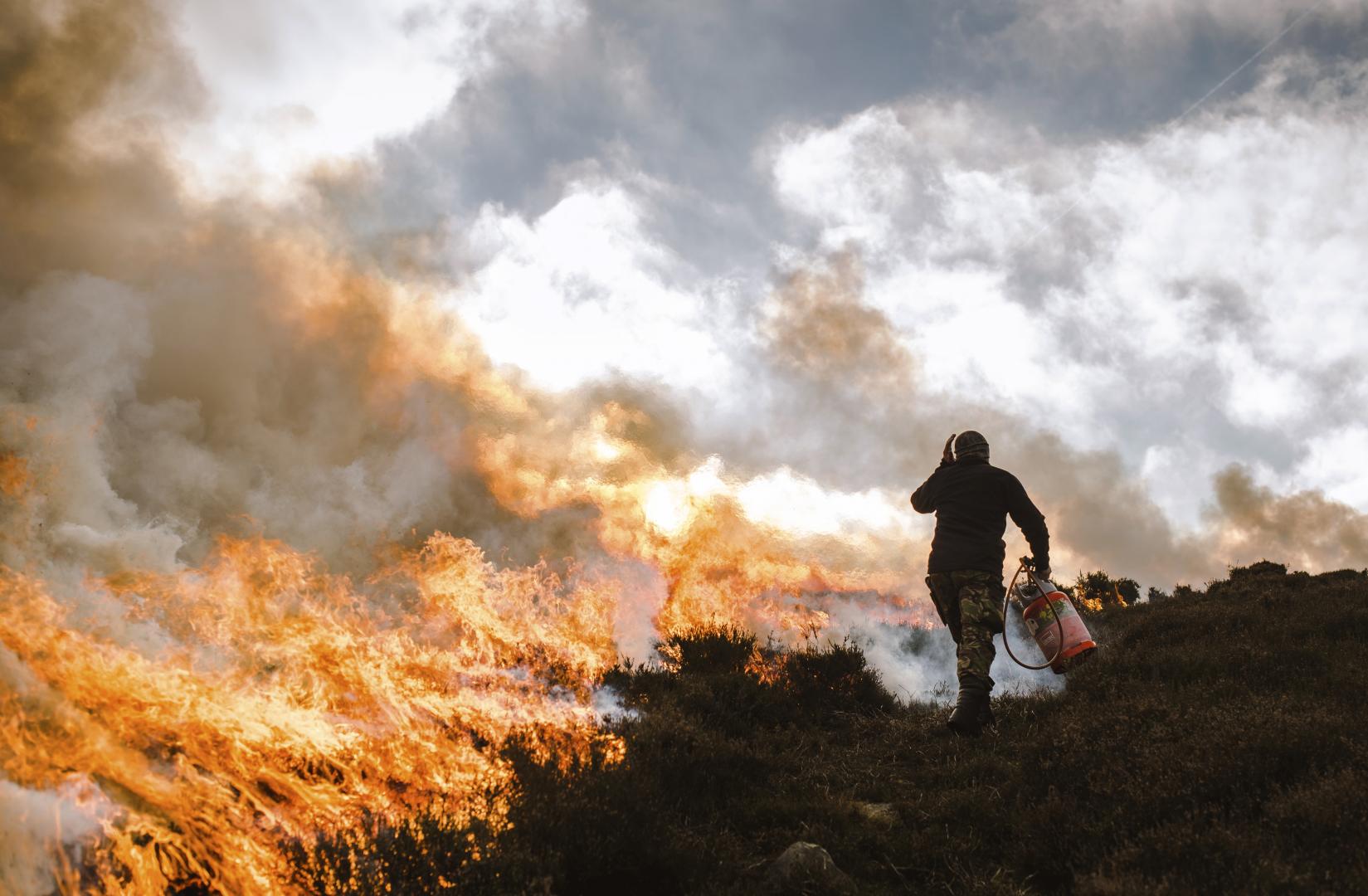A COUNTRYSIDE body responsible for conservation in the North Pennines is calling for the end of rotational heather burning on blanket bog – a controversial practice it says is widely carried out by shooting estates.
North Pennines Area of Outstanding Natural Beauty Partnership (AONB) made the statement in its five-year management plan, which is out for public consultation.
Gamekeepers say rotational burning is needed to manage mature heather and provide forage for grouse, but the Royal Society for the Protection of Birds (RSPB) says the practice is partially responsible for the “poor state” of Teesdale’s blanket bog.
AONB director Chris Woodley-Stewart said: “Moorland owners and managers have burned the same areas of blanket bog on rotation over many years. It is widely accepted that rotational burning of blanket bog over time can be detrimental to its ecological function, though it is beneficial for red grouse as it provides a mosaic of differently-aged heather to support their feeding and breeding requirements.”
The AONB was not able to say how much blanket bog is burned in the Teesdale area but added it was a frequent practice.
Mr Woodley-Stewart added that environment secretary, Michael Gove, had recently written to all moorland estates and asked them to end rotational burning of blanket bog and many estates across the country have signed up to a voluntary agreement to end the practice.
He said: “This doesn’t mean that all moorland burning will come to an end – burning is still a tool that moorland managers will use and many estates will be entering into agreements with Natural England which will have a burning component in them.
“We’d welcome the ending of rotational burning and the draft AONB management plan for 2019 to 2024 is consistent with government advice and established science on this matter.”
Chris Collett, from the RSPB in Northern England, said much of the moorland in the North Pennines is home to valuable blanket bog, which has benefits such as locking up harmful carbon, reducing flood risk, purifying water, slowing the spread of wildfire and providing a home for wildlife.
He added: “However, much of this blanket bog is in a poor state, which is partly due to the practice of heather burning on grouse moors.
“This management practice dries out peat, making it bad for carbon storage, bad for water quality, flood risk alleviation and bad for some plants and wildlife.
“Consequently, we welcome the call for the end to rotational burning in the North Pennines AONB’s five year management plan.”
Liam Bell, chairman of the National Gamekeepers’ Organisation, said: “Gamekeepers and land managers in the North of England are a vital and willing part of the solution to ensure that upland blanket bog habitats are safeguarded.
“As part of moorland management planning, burning is seen as a legitimate tool when it helps to facilitate restoration. The long-term aim of all upland land managers is to achieve active, functioning bogs that are good for carbon storage, water, biodiversity, grazing and indeed grouse.”
Moorland estate owners say rotational burning is only one aspect of moor management but privately owned sites are signing up to a commitment to restore blanket bog.
Amanda Anderson, director of the Moorland Association, said: “The moorlands of the North Pennines AONB are of global environmental importance, dominated by large expanses of blanket bog and upland heath. The habitat is defined not by the vegetation but by the depth of peat. If 40cm or more, it is classified as ‘blanket bog’ and the modern moorland management approach alters accordingly.
“Heather burning is one of a number of measures employed across the AONB depending on the habitat and state of peat to reduce the dominance of mature heather and the risk of wildfire.
“Other tools include the use of managed livestock grazing and cutting. The Defra-endorsed Blanket Bog Land Management Guidance that grouse moor managers helped produce provides a detailed explanation of the intricacies of burning and why and when it is undertaken on blanket bog.
“Privately owned moorlands managed for grouse shooting within the AONB are signed up to Defra’s Voluntary Commitment to restore blanket bog following this jointly-produced guidance. The Moorland Association is committed to working in partnership with a range of organisations to restore blanket bog habitats across the north of England.”







